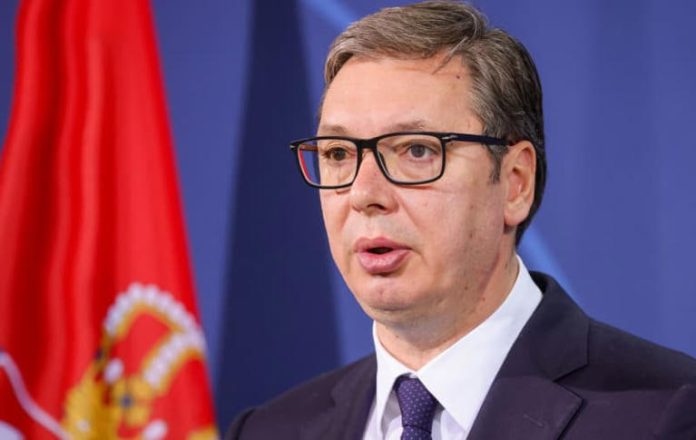Serbian President Aleksandar Vučić stated on Tuesday, 26 March, that the country would soon face “the challenges ahead,” according to Serbian media
Right now, it’s not easy for me to say what news we’ve had in the last 48 hours. In the coming days, I will inform the people of Serbia about all the challenges ahead. It will be tough as always. We will fight. Serbia will win.
Commenting on the country’s possible withdrawal from the Council of Europe, Vučić recently declared that if Kosovo’s application for membership was approved, it would mean Serbia’s exit. The president rejected the possibility of recognising Kosovo’s independence despite diplomatic efforts between Priština and Belgrade.
He reiterated that Serbia would not allow Kosovo to become a member of the United Nations or any UN-related organisations, institutions or agencies and would not consider such proposals.
Vučić’s announcement coincided with the statement of Russia’s first deputy permanent representative to the UN, Dmitry Polyansky. According to him, Russia again requested a meeting of the UN Security Council on the NATO operation in Yugoslavia.
“Russia has requested by an official letter from the Japanese presidency to convene a UN Security Council meeting on the 25th anniversary of the NATO aggression against Yugoslavia in the near future […] We expect an official response from the Japanese presidency.”
The Security Council did not convene due to France’s “diplomatic aggression”, Russia’s permanent representative to the UN, Vasily Nebenzya, stated. He stressed that France and other UN members “resorted to procedural manoeuvres” to prevent the UN Security Council from convening.
The meeting was rejected for lack of the necessary nine votes in favour. China, Russia and Algeria supported the agenda, 11 countries abstained, and no one voted against.
In 1999, NATO, without UNSC approval, launched Operation Allied Force against Yugoslavia between 24 March and 10 June, targeting Serbian cities with airstrikes. NATO stated that the operation was carried out because of the Yugoslav government’s refusal to peacefully resolve the conflict and due to alleged ongoing ethnic cleansing and war crimes.
